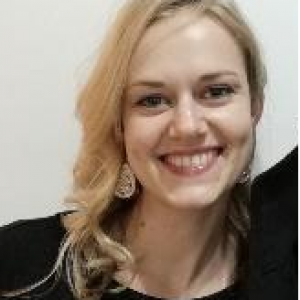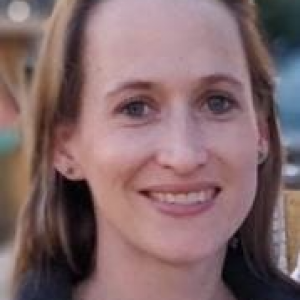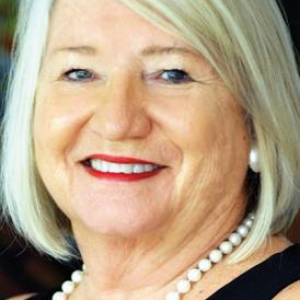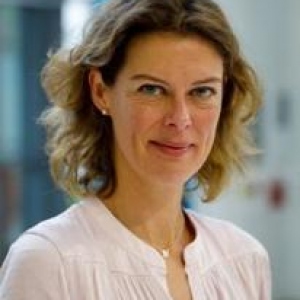Meet The Team

Alessandra Prioreschi
Alessandra is a researcher at the SAMRC/Wits Developmental Pathways for Health Research Unit (DPHRU). She obtained her PhD in Exercise Physiology in 2014, in the School of Physiology at the University of the Witwatersrand. She then completed a first postdoctoral fellowship at DPHRU, during which time she developed an interest in maternal and child health, specifically the effect of movement behaviours (physical activity, sedentary behavior and sleep) on infant growth, development and wellbeing. She developed methodology for measuring infant movement; and was instrumental in the design, development and feasibility testing of an infant wearable band for the objective measurement of infant movement using accelerometry. Alessandra is particularly interested in how the caregiving environment can influence infant movement and thus early childhood development.
Alessandra served on the steering committee for the development of the South African Movement Guidelines for the early years (0-5 years), as well as the Healthy Active Kids Report Card committee. Alessandra has received funding from the Wellcome Trust, Claude Leon Foundation and the Centre of Excellence in Human Development, the National Research Foundation, the Oppenheimer Memorial Trust, and the NIH.

Helene Theunissen
Helene is a PhD student with the SAMRC/Wits Developmental Pathways for Health Research Unit (DPHRU). She completed a Masters Degree in Public Health (MPH) at the University of Cape Town, in 2020.
Her work as a Dietitian, Research Assistant and Research Coordinator, has sparked her research interest in Maternal and Child Health. She is particularly interested in the significance of the “First Thousand Days” especially in the context of obesity and non-communicable diseases.

Fiona Bennin
Fiona is a PhD student at the SAMRC/ Wits Developmental Pathways for Health Research Unit (DPHRU). After working as a qualified Paediatric Occupational Therapist in South Africa and the UK, she completed her Masters in Public Health (MPH) at the University of Cape Town in 2013.
She has since been working in clinical research as a Research Coordinator, in the areas of Emergency Medicine and Paediatric Orthopaedics as well as Environmental Health. Fiona’s main research interests are in child development and physical activity, particularly with regards to how both are impacted by the environment.

Dumsile Maduna
Dumsile is a PhD student at the SAMRC/Wits Developmental Pathways for Health Research Unit (DPHRU). She holds a Master of Public Health, specialising in Epidemiology and Biostatistics at the University of Cape Town, 2019.
Dumsile has a background in Environmental Health Science. Her research interest includes computational and statistical methods for epidemiology, data science, and machine learning as applicable to Maternal and Child Health.

Sarah Cantrell
Sarah is a Community Based Counselling Psychologist registered with the Health Professions Council of South Africa. She has been offered a PhD fellowship at the SAMRC/Wits Developmental Pathways for Health Research Unit (DPHRU) at the University of the Witwatersrand.
After completing her Masters degree in 2009, her further studies on infant observation lead her to work with mothers and their newborn babies, under 5s and adolescents. Now, her research focuses on maternal mental health and its impact on mother / infant interactions. She bases her work on a public health model, investigating measures to promote bonding and attachment in the biological, psychological and social spheres in which mother / infant dyads find themselves.

Shane Norris
Shane Norris is a Research Professor within the Department of Paediatrics at the University of the Witwatersrand, Johannesburg, South Africa. Shane is the Director of the South African Medical Research Council’s Developmental Pathways for Health Research Unit (DPHRU), and Director of the South African Department of Science and Technology and National Research Council’s Centre of Excellence in Human Development (CoE-HUMAN).
He is an elected Fellow of the Academy of Science of South Africa, and President of the Africa Chapter of the International Society of Developmental Origins of Health and Disease. Shane’s research expertise is in lifecourse nutrition and epidemiology.

Linda Richter
Applied social and public health research into the effects of adversity on children and families is the major focus of Professor Linda Richter’s work, particularly with regard to early child development and the role of men and fathers in child development. She obtained her PhD from the University of Natal (now the University of KwaZulu-Natal) and has held the positions of lecturer, professor, research fellow and visiting scholar at institutions such as Harvard and Oxford Universities, the University of Melbourne and, in South Africa, UNISA, UKZN and Wits.
She is currently a Distinguished Professor and Director of the DST-NRF Centre of Excellence in Human Development at Wits and Emeritus Distinguished Research Fellow at the HSRC. She has authored and co-authored more than 200 peer-reviewed journal articles, 123 book chapters and four books. In addition, she is the recipient of numerous awards including the National Science and Technology Forum Award and the Presidential Award from the Medical Research Council. She is a member of the American Psychological Association and the Academy of Science of South Africa.

Rebecca Pearson
Research interests: My research objectives are to understand the mechanisms underlying the intergenerational transmission of mental health and to translate this into preventative interventions.
In order to investigate this area I take a multidisciplinary approach combining detailed neuro-psychological and developmental investigations with large scale epidemiological studies and health care research. I am currently leading an ERC funded program of work in this area including partnerships in South Africa and Brazil.

Deborah Lawlor
I have a background in clinical medicine and public health practice which inform my academic work. My academic career began in 2000, with completion of my PhD in 2003. Since then I have become an internationally recognised lead in aetiological epidemiology, established a multidisciplinary team of excellent researchers and held several institutional, national and international leadership roles. In 2012 I was elected to be a member of the Academy of Medical Sciences, and was also awarded National Institute of Health Research Senior Investigator status in the same year (this was renewed in 2017). Since 2015 to current year (2020), I have been identified as a Thomson Reuters Highly Cited Scientist (in the top 1% of my field). In 2017 I was awarded Commander of the British Empire (CBE) in the Queen’s Birthday Honours, in recognition of my research excellence and its impact. My research is underpinned by my interest in understanding how biological, social and environmental exposures from across the life course affect women’s reproductive health and cardiometabolic health in women and men, in order to be able to develop methods to achieve optimal health in these areas. I have contributed to understanding the life course and genetic epidemiology of obesity, diabetes, cardiovascular disease and women’s reproductive health; with a particular interest in the relationship between women’s reproductive health and her, and that of her offspring’s and the next generation’s cardiometabolic risk. I am interested in developing methods for improving causal inference in epidemiology and have been at the forefront of developing and genetic variants as instrumental variables for making causal inference about modifiable non-genetic risk factors and appropriately comparing findings from such studies with those of other approaches, with differing assumptions and key sources of bias, to achieve best causal evidence. |

Cindy-Lee Dennis
Dr. Cindy-Lee Dennis is a Professor in the Lawrence S. Bloomberg Faculty of Nursing and the Faculty of Medicine, Department of Psychiatry at the University of Toronto. She holds the Women’s Health Research Chair at Li Ka Shing Knowledge Institute, St. Michael’s Hospital. Previously she held the Canada Research Chair in Perinatal Community Health. She is currently the principal investigator of seven large, multi-site studies and is a co-investigator on twenty-four other research projects concerning maternal, paternal, and infant health outcomes with a particular focus on perinatal mental health, breastfeeding and e-health interventions. She holds over $23 million in funding as a principal investigator from the Canadian Institutes of Health Research (CIHR) and has over 200 peer-review publications.
She is the lead author on eight Cochrane systematic reviews and has provided over 165 invited presentations. She developed the Breastfeeding Self-Efficacy Scale, the most widely used breastfeeding measure in the world that has been translated into over 20 different languages. Dr. Dennis has worked with the Ontario Ministry of Children and Youth Services, the Provincial Council for Maternal and Child Health, and Public Health Ontario to influence policy and improve the care provided to women and their families across the perinatal period.
Academic Credentials
2000 to 2002 – Postdoctoral Fellowship, University of British Columbia, Vancouver
1999 – PhD, University of Toronto
1995 – MScN, University of Western Ontario, London
1991 – BScN, University of Toronto

Kirsten Rennie
Kirsten Rennie is a Senior Research Associate leading the development of research on physical activity and diet in patient populations for the NIHR Cambridge Biomedical Research Centre (BRC) Theme on Diet, Lifestyle and Nutrition and the development of physical activity measurement for the Innovation in the Measurement of Diet, Physical Activity and Nutrition programme.
This work includes the development and evaluation of lifestyle interventions in different patient groups. Her work focuses on the incorporation of telehealth in studies, particularly quantitative measures of free-living physical activity and diet and how these can be used to assess the impact of interventions or improve clinical care pathways. Kirsten is also interested in how remote monitoring can be used to identify individuals who are at risk of adverse health outcomes.
Kirsten contributes to the supervision of Masters and PhD students.
Background and experience
Kirsten has worked as an epidemiologist in both academic and industry settings, including MRC Human Nutrition Research, Oxon epidemiology, UBC, Unilever, University College London and University of Ulster. Her previous work has included the development of objective measurements of physical activity into large-scale studies such as wave form accelerometry and heart rate monitoring. This involved applying these measurements in observational studies of metabolic diseases with other measures of physical activity and dietary behaviour. Kirsten has also evaluated lifestyle interventions in weight management programmes and worked on pharmaco-epidemiology safety and effectiveness studies in large-scale patient studies.
Kirsten received a MA in Biological Anthropology (1995), MPhil in Epidemiology (1997) and PhD in physical activity epidemiology (2000) from the University of Cambridge. She is a UK registered nutritionist (Association for Nutrition, Public Health specialty) and an Honorary Associate Professor at the London School of Hygiene and Tropical Medicine. She holds an honorary research contract with Cambridge University Hospitals NHS Foundation Trust and a Public Health Academic Contract with the Department of Health and Social Care.

Ian Nabney
Professor and Head of School of Computer Science, Electrical and Electronic Engineering, and Engineering Maths, University of Bristol. My research spans both the theory and applications of neural networks and other pattern recognition techniques, with a special focus on data visualisation and probabilistic modelling. I joined the University of Bristol as Head of School in October 2017.
After studying mathematics for a BA at Oxford, I moved to Cambridge to do my PhD, which was in abstract algebra. I then spent five years with Logica (a UK software house) at their R&D lab, where I developed a wide range of neural network applications and also worked in formal methods.
I joined Aston University as a Lecturer in Applied Mathematics in 1995. In my 22 years there I took on a wide range of different positions. In my last year, I was the Acting Executive Dean for the School of Engineering and Applied Science, and at the University level I was Associate PVC International for China. I was a 50th Anniversary Professor of Systems Analytics: one of a small group of professors to receive a special award on the 50th anniversary of the establishment of Aston as a University. I was formerly Head of Computer Science (2009-2016), Head of Mathematics (2012-2015) and Associate Dean for Research in the School (2006-2008).
I led the introduction of a range of innovations at Aston: a university-wide research publication repository; work-based Degree Apprenticeships recruiting about 100 students per year, with the first graduates in 2017; and a student-led software company to provide on-campus experience of industrial-standard software development.
My research spans both the theory and applications of neural networks and other pattern recognition techniques, with a special focus on data visualisation and probabilistic modelling. Much of my work is inspired, directly or indirectly, by industrial problems in bioinformatics, biosignal processing, condition monitoring, remote sensing and financial forecasting. I have put my experience of software engineering to good use through developing the Netlab toolbox for neural networks and related pattern analysis techniques: this has now been downloaded more than 48,000 times and the accompanying book has 1300 citations. At Bristol, I am a member of the Intelligent Systems Lab.
Between October 2000 and June 2002 I was the Director of the Cardionetics Institute of Bioinformatics, which researched methods for extracting clinically valuable information from electrocardiogram (ECG) data. The current focus of my research is in data visualisation (representing high-dimensional data faithfully in 2D so that users can analyse its structure visually) and time series analysis and characterisation (with applications in biomedical signal processing and condition monitoring of complex machinery).
I am currently teaching a new unit in Visual Analytics for the MSc Data Science. This unit will cover two key aspects of visual analytics: the science of information visualisation (primarily concerned with the way that data is represented visually), and advanced machine learning (as a tool to change the data representation, e.g. through dimensionality reduction, or as a way of analysing visual data) in a framework of statistical pattern recognition.
In the past I have taught a wide range of units, including Algorithms and Computational Maths, Statistics, Software Programme Development, and Software Engineering and Management.

